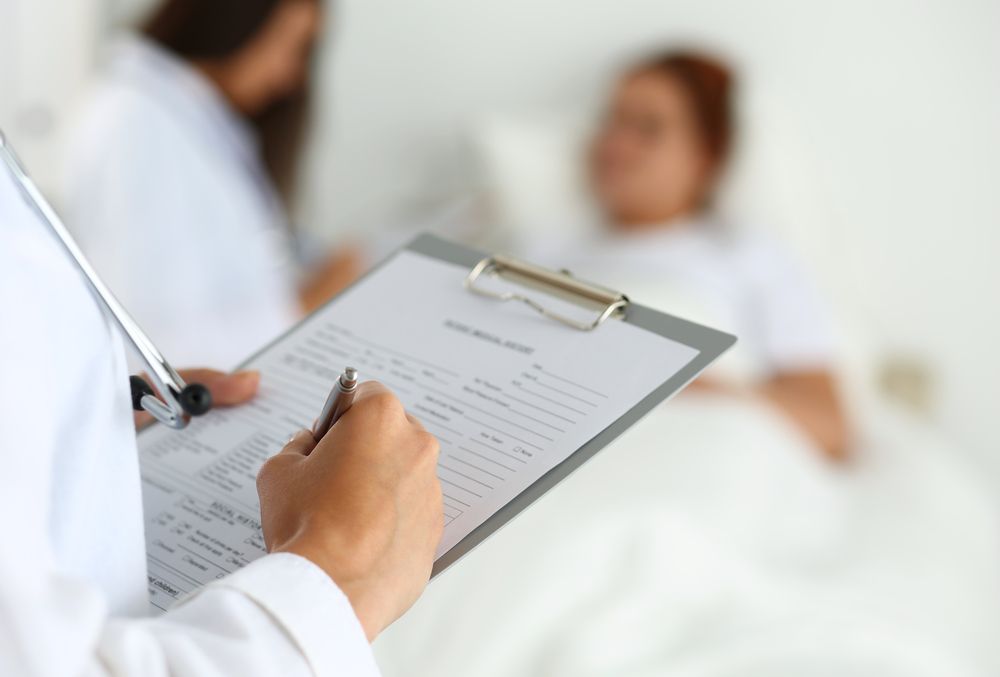Diagnosing Sleep Apnea: What Steps Are Involved
 Many people think that sleep apnea is just a bad case of snoring. That is definitely not the case. Sleep apnea refers to interruptions in your breathing during sleep. These interruptions can last a few seconds to a few minutes and can occur throughout the night as you sleep. Sleep apnea can cause or contribute to a variety of health problems over time, including high blood pressure, excessive weight gain, type 2 diabetes, and depression. It’s important to undergo sleep apnea treatment as soon as possible to improve your overall wellness.
Many people think that sleep apnea is just a bad case of snoring. That is definitely not the case. Sleep apnea refers to interruptions in your breathing during sleep. These interruptions can last a few seconds to a few minutes and can occur throughout the night as you sleep. Sleep apnea can cause or contribute to a variety of health problems over time, including high blood pressure, excessive weight gain, type 2 diabetes, and depression. It’s important to undergo sleep apnea treatment as soon as possible to improve your overall wellness.
The team at our Charlotte, NC dental care practice offers a number of options to address sleep apnea. The first step in getting treating is being properly diagnosed. Let’s take a moment to explore that process and what it entails.
Signs and Symptoms of Sleep Apnea
To determine if you might suffer from sleep apnea, consider if you exhibit the following symptoms:
- Loud or excessive snoring
- Waking up at night frequently
- Shortness of breath during sleep
- Dry mouth or sore throat when you wake up
- Insomnia
- Headaches in the morning
- Irritability or mood swings
- Daytime drowsiness (hypersomnia)
- Difficulty paying attention
Speak with Your Doctor
If you or your partner notice any combination of the above symptoms, it’s a good idea to speak with your doctor. Your general practitioner will have more insight into how to address all of these issues. You may be asked to take a small quiz to verify some of the symptoms in addition to a physical examination.
In-Office Sleep Study
In order to diagnose sleep apnea, many patients undergo a sleep study known as a polysomnogram. Patients will sleep in a special sleep study center, allowing their behavior and vital signs to be monitored by professionals using state-of-the-art equipment to measure brain activity, muscle activity, breathing patterns, and the amount of oxygen in your blood.
The following equipment may also be used during the sleep study:
- EEG (Electroencephalogram) to record brain wave activity
- EMG (Electromyogram) to record the activity of your muscles
- EOG (Electro-oculogram) to record eye movements
- ECG (Electrocardiogram) to record your heartbeat
- Nasal airflow sensor
- Snore microphone
At-Home Sleep Testing
In some cases, patients may be able to undergo a sleep test while at home. This involves the use of certain equipment provided to the patient in order to measure breathing, oxygen levels in the blood, heart rate, and so forth. The testing may not be as involved as the in-office study, but the data collected will be helpful in treatment.
Going Over the Data and Findings
A sleep specialist can go over the data collected from your sleep study and determine what kind of sleep apnea you suffer from as well as how severe your case is. There are three kinds of sleep apnea:
- Obstructive Sleep Apnea (OSA) - This is sleep apnea caused by physical blockages in your breathing passages
- Central Sleep Apnea (CSA) - This is sleep apnea caused by problems with your central nervous system and the part of the brain that controls respiration
- Mixed Sleep Apnea - This is a combination of OSA and CSA
Once the type and severity of sleep apnea is identified, a proper treatment plan can be created just for you.
Getting the Treatment You Need
For more information about treating sleep apnea and helping you have a restful night of sleep again, be sure to contact a skilled cosmetic and restorative dentist. The team at Advanced Dentistry of Blakeney is here to help you.


